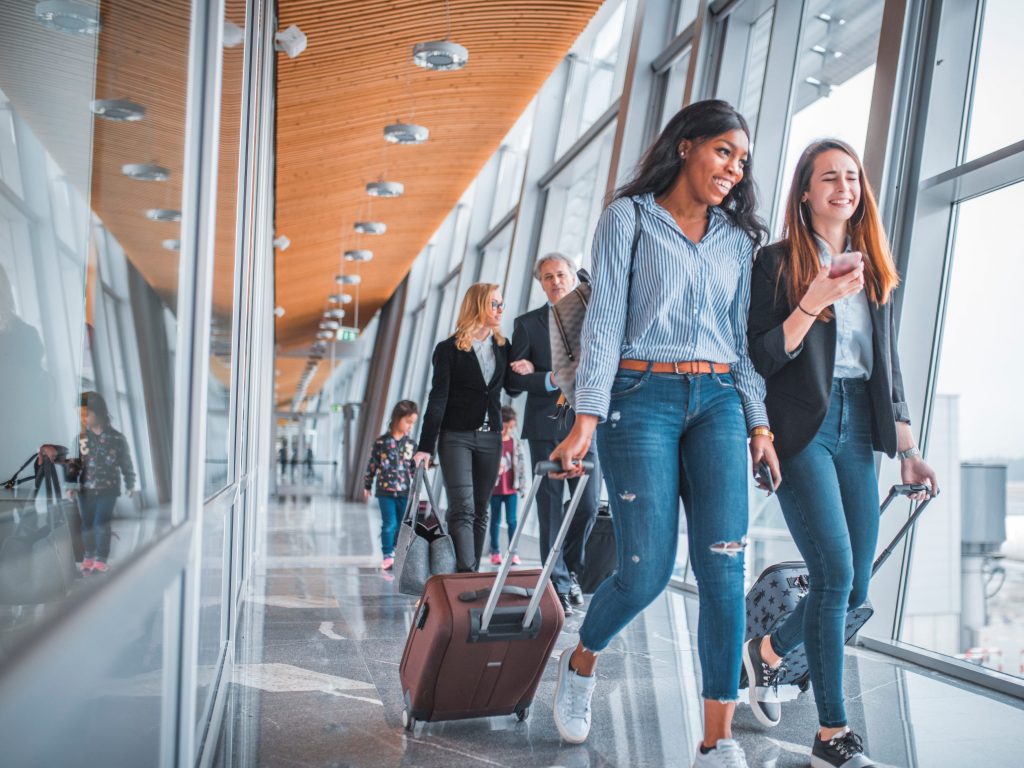
Getty
- A new essay in The Guardian highlights how rolling suitcases were undermined by gender roles.
- The suitcases were seen as female-coded for years, keeping them out of the mainstream.
- The anecdote showcases how systemic biases shape our economy.
- See more stories on Insider's business page.
Today, rolling suitcases are the mainstays of moving sidewalks, duty-free shops, and business commuters pacing while on the phone. But while it's a no-brainer that rolling a suitcase is easier on your arms than carrying it, they're still a relatively recent addition to the mainstream.
That's strange, though, because they've been around for a long time.
An essay in the Guardian by Katrine Marçal argues that the product resisted widespread adoption for decades because of sexism. Women were rolling suitcases for decades before the actual product was officially "invented" in 1972, Marçal reports, writing there was an "unmanly" association with the product. It also ran into another gender norm: That men were expected to tote luggage on everyone's behalf. Luggage wasn't seen by society as something that should ease travel burdens for women traveling alone, Marçal writes.
Eventually, as Marçal chronicles, solo travel by women became more ubiquitous in the 1980s – and a new design in 1987 somehow made the rolling suitcase safe for men to use, too.
The anecdote showcases how what is seen as the traditional cycle of economics – products meeting demand, and consumers buying them – can't be separated from perceptions around gender roles and other systemic exclusion. In the case of the rolling suitcase, men went without a more useful device for years, for no reason besides bias. But economic history has more serious repercussions than sore arms from similar instances of prejudice.
For instance, women are about 70% more likely to get seriously injured or die in a car crash, Insider's Rachel Premack reported in 2019. It may be coincidence, but female crash test dummies weren't used until 2003, and when American car companies introduced that dummy, she was just five feet tall and weighed 110 pounds.
Beyond automotive safety, many consumer products are designed without women in mind, Nicola Erdmann and Sophia Ankel reported in 2019. For instance, many smartphones are too small for women's hands - and Apple, which came under particular fire for iPhones being too large, didn't include a menstrual tracker as part of its health app for several years.
While men can and do use rolling suitcases today, biases can persist in shaping the economy, and who has access to certain products. As Insider's Isobel Asher Hamilton reported, algorithmic bias goes beyond apps that depixelate people of color's faces into white faces; leading facial recognition software is less adept at identifying darker faces and female faces. That type of software has been used in policing - a practice that was curtailed in the last year following protests over racist police brutality (and following years of advocacy by activists).
And, while the fashion and clothing industry has somewhat opened the doors in terms of plus-sized fashion, many retailers still opt out of clothing larger bodies - potentially leaving billions on the table.
It makes one wonder, what economic progress is being left behind right now, just because of perception around gender roles?
